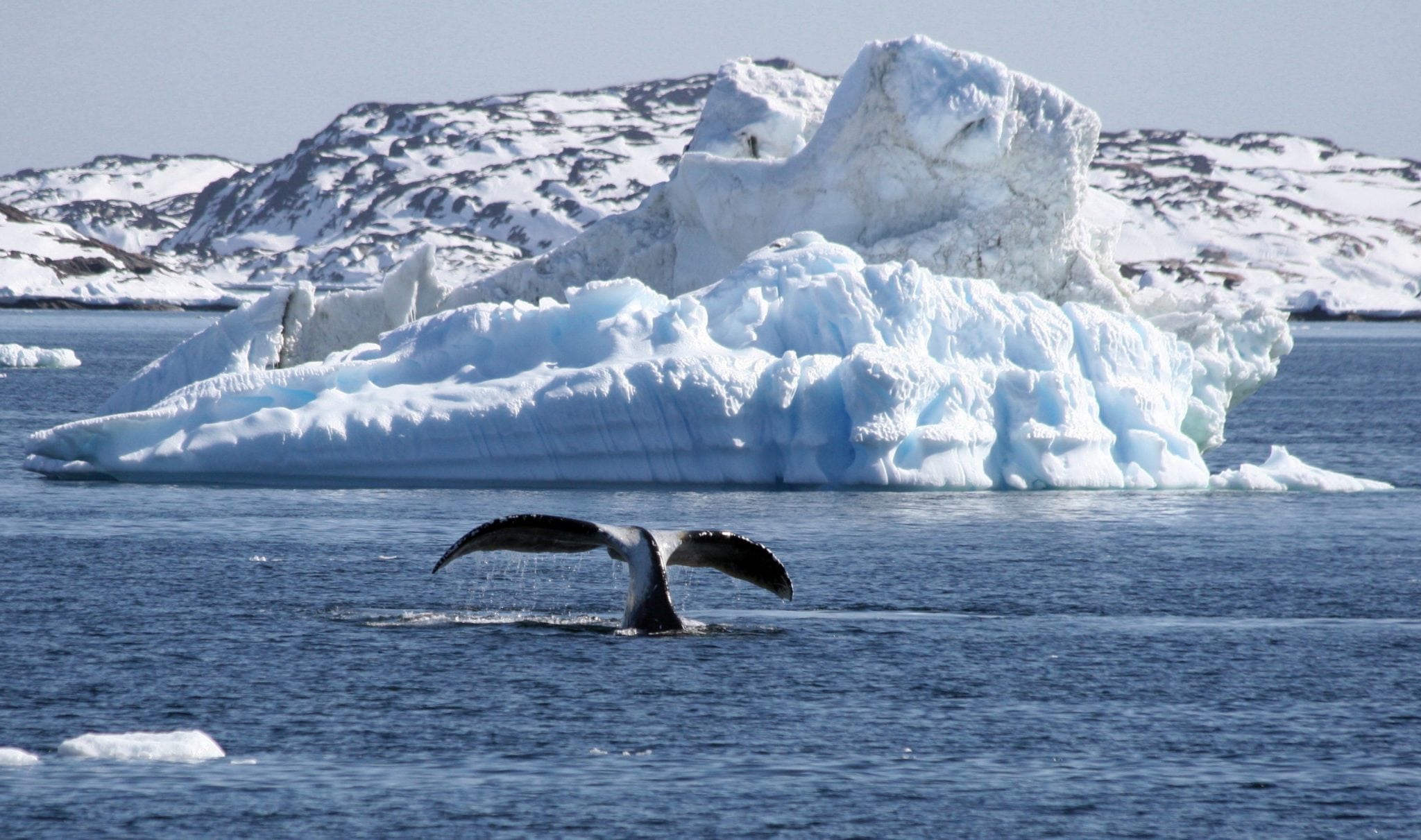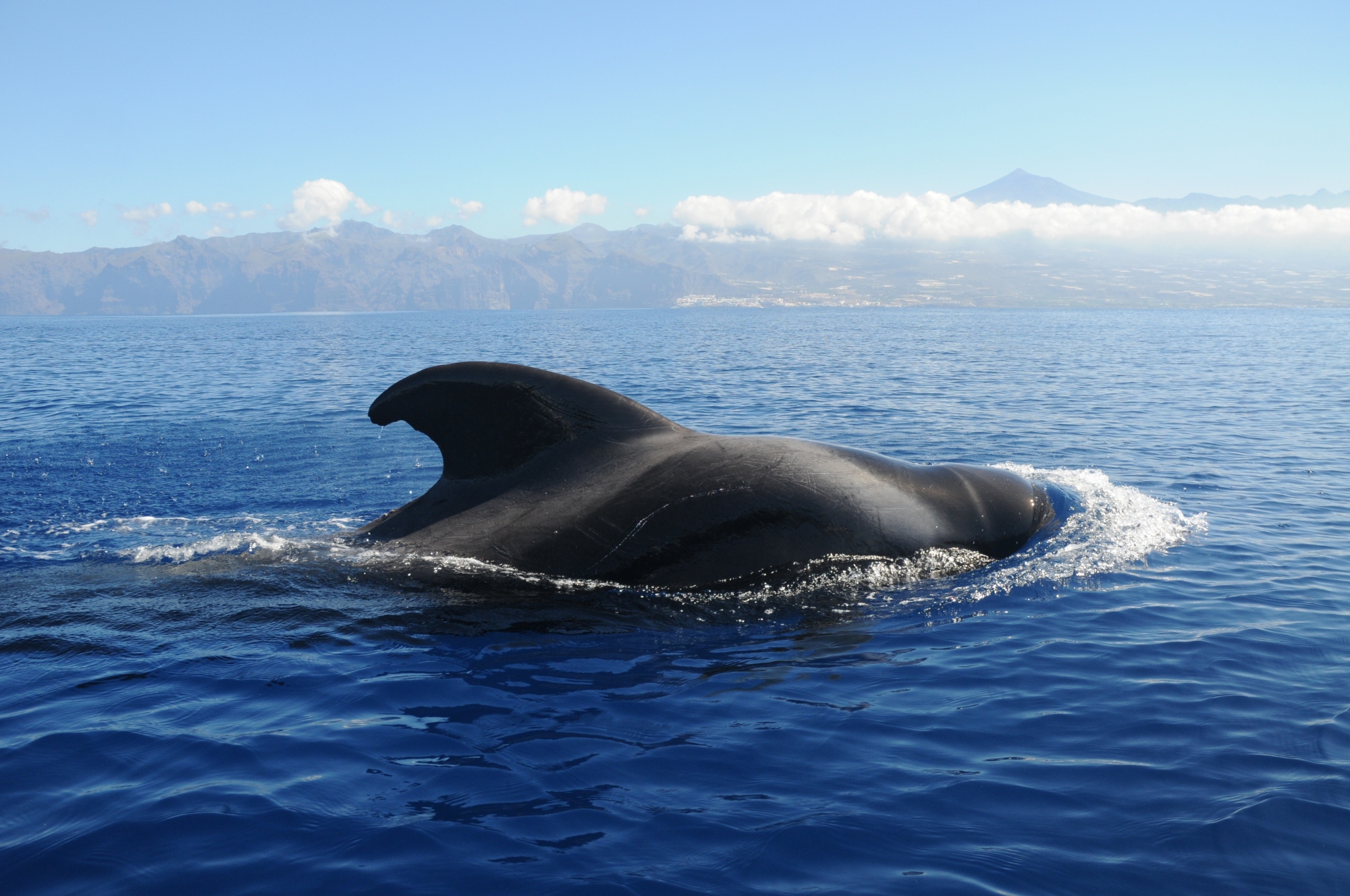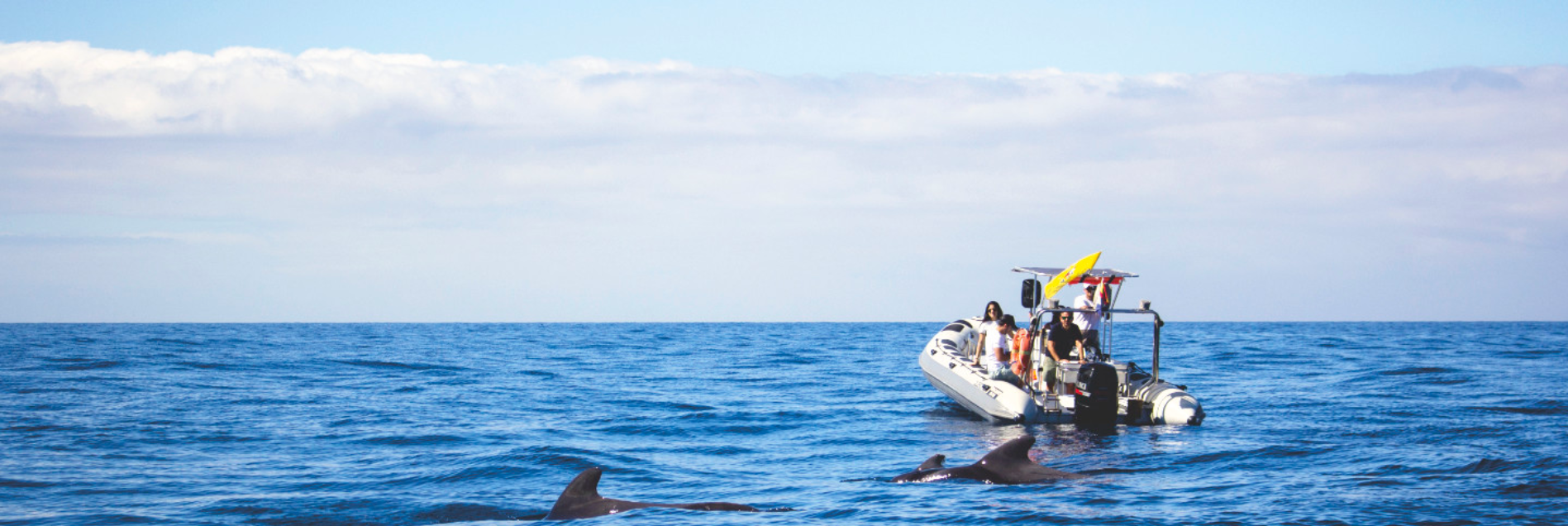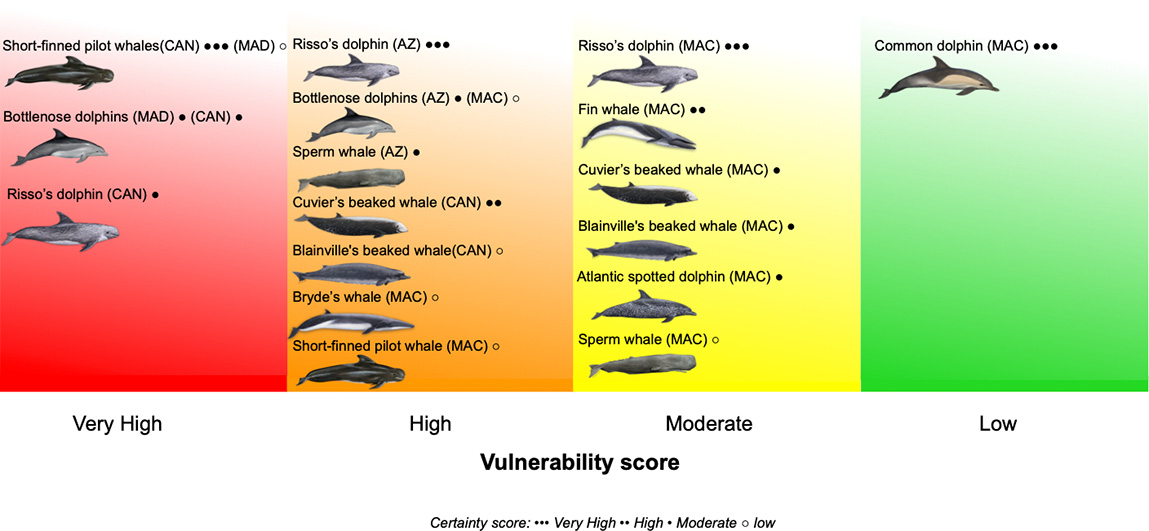SOCLIMPACT: the effects of climate change on European islands
By @marinatortosa27 / @aguitasubmarina
Global warming is an unequivocal reality. The continued emission of greenhouse gases is causing irreversible changes in the world, and more specifically, in the seas and oceans. The increase of sea temperature, acidification and loss of oxygen are increasingly affecting the marine species that inhabit our waters, modifying their behavior, abundance and distribution. One of the objectives of the SOCLIMPACT project is the study of the vulnerability of cetaceans to these changes, and from BIOSEAN Whale Watching & Marine Science we have contributed our knowledge and experience to help these large marine mammals.
Want to know more about this interesting project?
Read on!

What is the SOCLIMPACT project?
The rate of warming of the world’s oceans has doubled since the 1970s. Since then, the marine pH has gradually decreased due to the absorption of CO2 by the waters. This also leads to a loss of oxygen and a considerable rise in sea level due to thermal expansion of the ocean and melting of glacial ice. All these changes in marine ecosystems drastically influence the distribution, abundance and way of life of many marine species, including cetaceans.
If we transfer this problem to an economic context, the big losers (in addition to marine fauna and flora) are the European islands, whose economy is largely based on whale watching tourism. The SoCLIMPact project (DownScaling CLImate imPACTs and decarbonisation pathways in EU islands) was created to predict and, as far as possible, minimize the negative impacts of climate change on the marine socio-economic sector of European islands and archipelagos.

Thanks to this project, which relies on the collaboration of leading researchers and companies involved in maritime tourism, policy makers have the opportunity to have accurate information on the potential impacts, costs and benefits of strategies to implement efficient measures. Specifically, strategies and plans are considered for 12 European islands: Azores, Balearic Islands, Canary Islands, Corsica, Crete, Cyprus, Fehmarn, Madeira, Malta, Sardinia, Sicily and the French Antilles.
How does climate change affect the Canary Islands?
In the Canary Islands, a large part of our economy is based on the service sector, tourism mainly. It is not surprising that the beaches, the crystal clear water, the mild climate all year round and the rest of the natural attractions of the archipelago, make these islands an important tourist destination, more than 12 million visitors come to the Canary Islands every year!
However, in recent years a public debate has arisen as a result of this fact. Increasingly, there is talk of “over-tourism” and the impacts that this generates on the ecological balance of the islands: the shortage of drinking water, the increase of waste water and garbage, the negative impacts of maritime transport on marine waters and fauna, etc. Is it sustainable to continue over-exploiting the archipelago for tourism?
If we add climate change to this complex scenario, the problem increases, and with it, the vulnerability of the islands. Within the framework of the Blue Economy, the future problems that may result from all the physical and socioeconomic impacts of climate change are projected in the four main economic sectors of the islands: tourism, maritime transport, energy and aquaculture. Therefore, the SOCLIMPACT project aims to find the answer to how these sectors will be able to respond to the impacts and vulnerabilities through adaptation and mitigation actions.

Misael Morales Vargas, representing BIOSEAN in the fight against climate change
The immediate impacts of climate change on whale watching are largely unknown, despite the great socio-economic importance for island communities. Therefore, SOCLIMPACT aims to examine in depth the possible impacts on the whale watching industry by supporting the PhD project “Climate Change and Whale Watching” , carried out by Andreia G. Sousa, a young researcher at the Center for Ecology, Evolution and Environmental Change, and the University of Lisbon.
Andreia G. Sousa’s project aims to evaluate the biological and socioeconomic implications of climate change for whale watching, as well as possible adaptation measures that can be taken by the industry to ensure the long-term sustainability of the activity. The research is being carried out in the Azores, Madeira and the Canary Islands (the European islands of the Macaronesian region), and will involve several local cetacean experts who will contribute their knowledge to evaluate and review adaptation measures to ensure the long-term sustainability of this tourist activity.
As experts on cetaceans in the Canary Islands, Andreia de Sousa selected for her project Patricia Arranz, PhD in marine biology, researcher of the BIOECOMAC group at the University of La Laguna, and Misael Morales Vargas, M.Sc in marine biology and founder of BIOSEAN Whale Watching and Marine Science.

In each of our boat trips aboard “Calderón”, we collect a large amount of data on the frequency, abundance and behavior of the species we encounter, also, the evironmental conditions and sound files of the animals that approach our boat. In this way, BIOSEAN Whale Watching & Marine Science manages to unite tourism and science, collaborating with many marine conservation projects such as the SOCLIMPACT project and funding science through tourism. If you are looking for an unforgettable experience with cetaceans and live marine science in first person… BIOSEAN is waiting for you!
Some results…
The project culminated with a conference in March 2021 and the publication of numerous articles, such as the one carried out by Andrea G. Sousa, Misael Morales Vargas, Patricia Arranz and other researchers, entitled: “Vulnerability of cetaceans to climate change in Macaronesia: Trait-based assessment perspectives“. The completion of this project marks the beginning of a new stage of learning and implementation of best practices that we can carry out in each of the European islands, and specifically in the Canary Islands.
Most of the Macaronesian species assessed showed high and moderate vulnerability to climate change. The short-finned pilot whale and bottlenose dolphin, so common along the coasts of Tenerife, are some of the species with the highest vulnerability.

The international science director of the Secretariat of the Convention on Biological Diversity (SCBD), Mark Simmonds, assures that, although cetaceans have the capacity to adapt, “changes in climate are occurring at such a speed that it is not clear to what extent these animals will be able to adjust”. However, cetaceans are not the only animals that are increasingly suffering the consequences of climate change. The dynamic balance of the planet’s ecosystems is being affected and represents a major threat to the survival of many species, such as sea turtles and sharks.
The fastest and most effective solution to climate change lies in the hands of governments and large industries, who must modify their laws and activities to reduce CO2 emissions and greenhouse gases. However, as individuals, we can also change some of our habits and thus help to slow down climate change. But how?
Small changes in our daily lives are enough, such as recycling, not throwing garbage in the toilet, increasing and promoting the use of non-polluting transport and encouraging the use of renewable energy sources. Just with our attitude and small acts we can contribute to save the whales and many other species affected by climate change.
Do you dare to join the change?